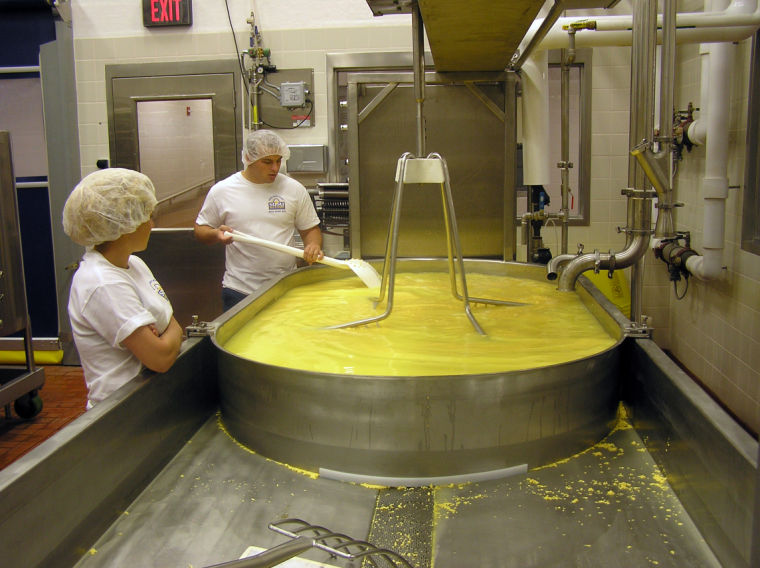Dairy program milks benefits of Bel cheese plant
New cheese manufacturing facility will provide opportunities for future dairy science students to gain real-world experience in their field of interest. (submitted photo)
February 16, 2012
Bel Brands USA announced plans earlier this month to build its third dairy manufacturing facility in the nation in Brookings.
The company plans to invest approximately $120 million in the new plant, which could bring about 400 new jobs to the city as well as several opportunities for SDSU dairy science students.
“This is huge,” said Vikram Mistry, dairy science department head. “The benefits go beyond just the act of working in a plant. A company of this stature brings in experience for the students right here at their doorstep.”
Headquartered in Chicago, Ill., Bel Brands is known for Laughing Cow cheese wedges and Mini Babybel cheeses. General Manager Lance Chambers said the company has grown significantly over the past few years, and the new Brookings plant is “essential” to meet the demand for Mini Babybel cheeses.
“The robust South Dakota dairy industry and its hard-working Midwestern values make Brookings an ideal location for our new plant,” Chambers said.
This will have a significant effect on the dairy program at SDSU, Mistry said.
Dairy science students will be able to find more opportunities to gain invaluable experience while working toward their degree. Because Bel Brands is an international company, Mistry said it would help increase global awareness and professional experience for the students.
“I think it speaks very highly of our faculty, our students and the university (that Bel Brands chose Brookings),” he said. “The opportunities for future students are immense.”
Working at a start-up factory like the one coming to Brookings can offer students an insight into real-world problems, said Austin Asche, a junior dairy manufacturing major from Hutchinson, Minn.
“You can really gain practical knowledge on the problems and difficulties you have starting up a plant,” Asche said.
He pointed out that a large-scale dairy plant would require a large supply of milk to make their products.
“They’ll need more cows to fulfill the milk requirements,” Asche said. “That means opportunities for production students to expand their farms.”
Students will not be the only people benefitting from having a major dairy plant in the local area. Mistry said the dairy industry itself would be impacted with more well-trained SDSU students entering the workforce.
He added that recognition from Bel Brands will make it easier to continue recruiting high-quality faculty and staff, which also benefits the dairy science program overall.
“People like to establish their careers where there is excellence,” Mistry said.
























